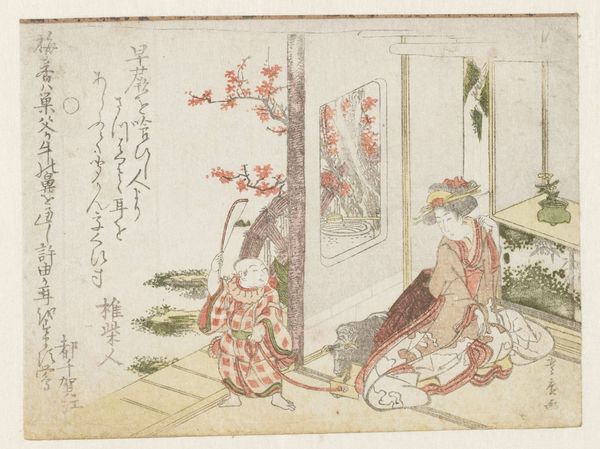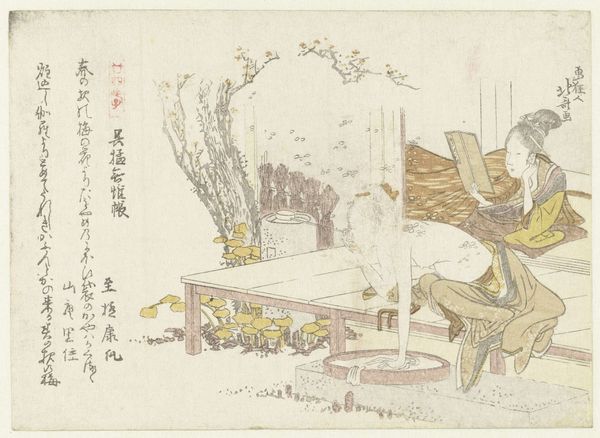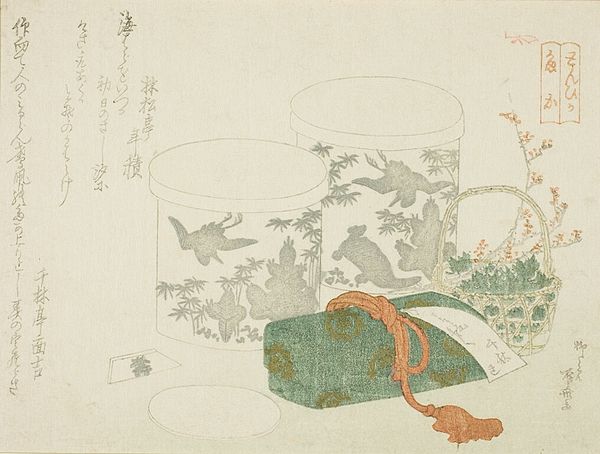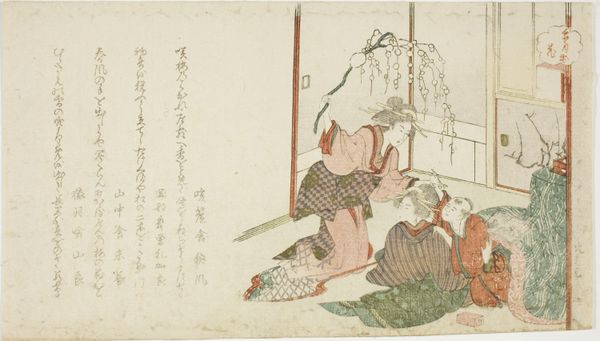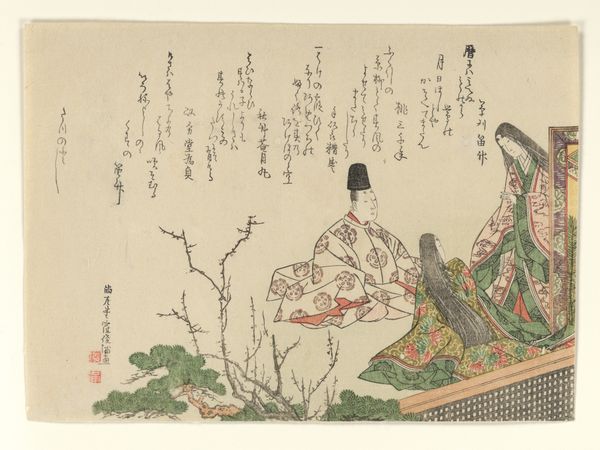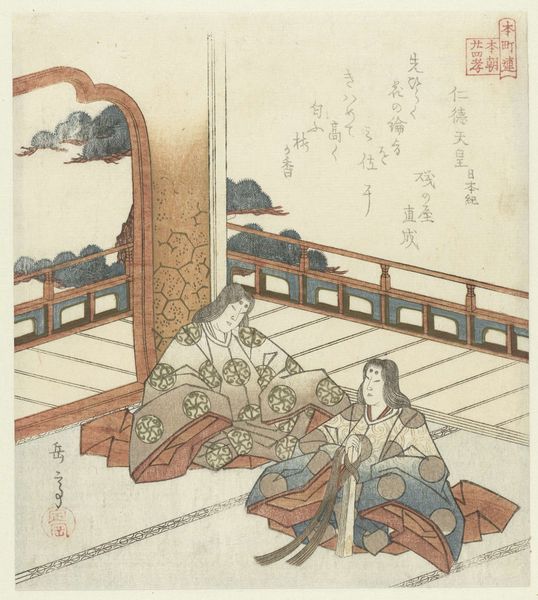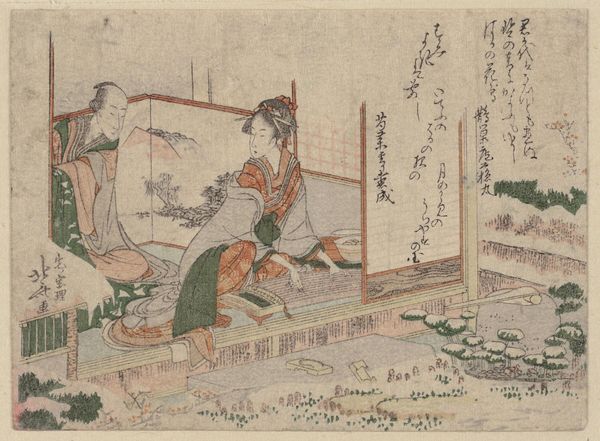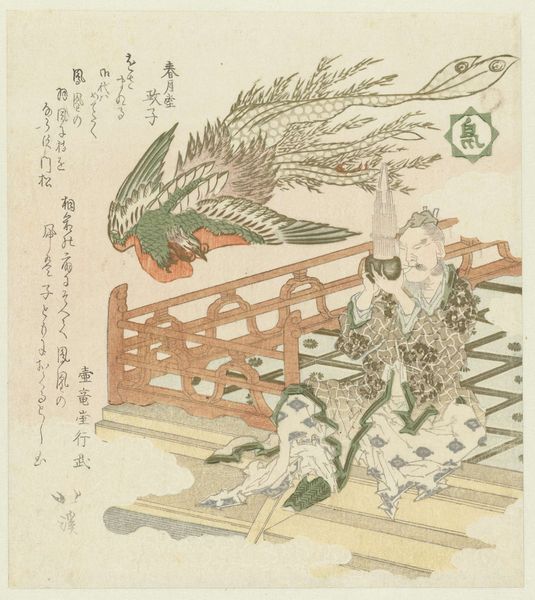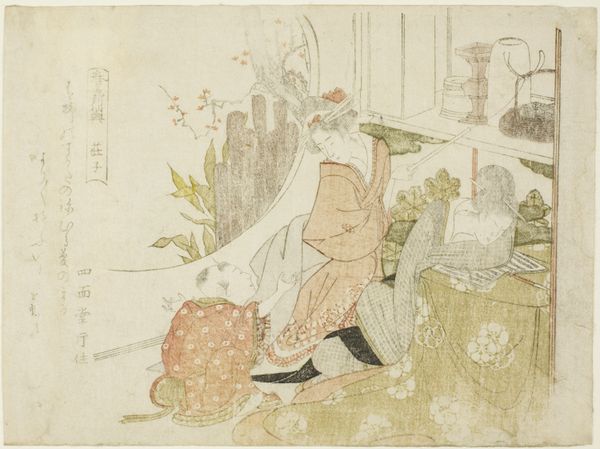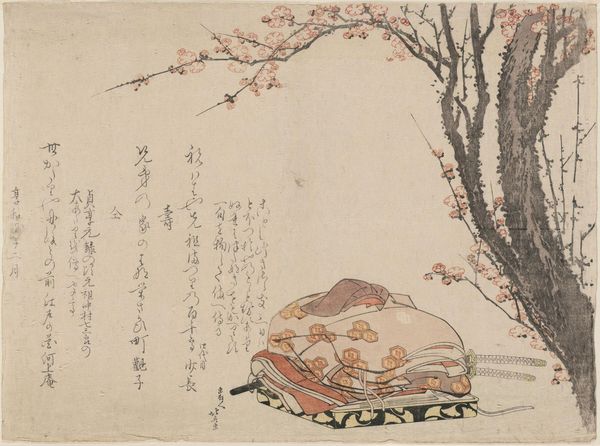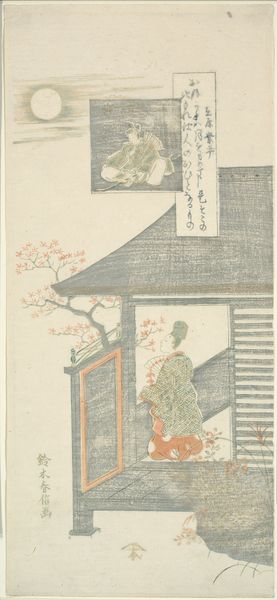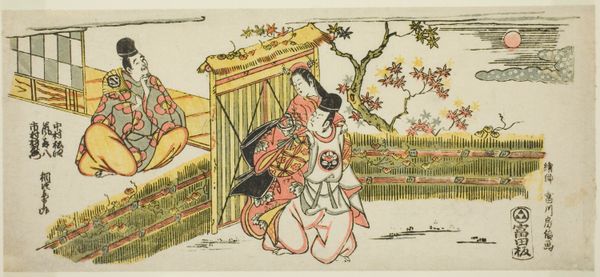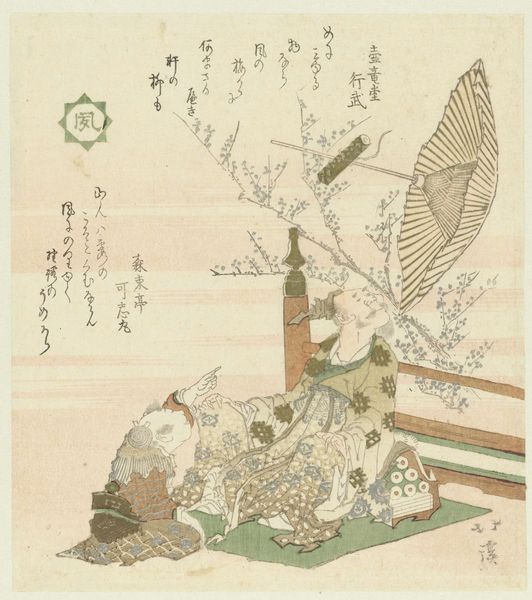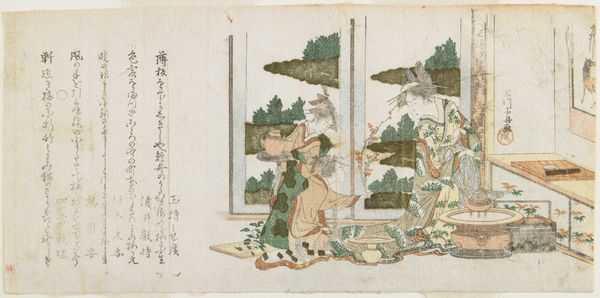
print, woodblock-print
# print
#
asian-art
#
ukiyo-e
#
figuration
#
woodblock-print
#
line
#
genre-painting
Dimensions: height 118 mm, width 345 mm
Copyright: Rijks Museum: Open Domain
Katsushika Hokusai’s woodblock print, 'De pleisterplaats Mariko,' shows travelers resting at a tea house, sharing food and drink. The plum blossom is prominently displayed here; in Japanese culture, it symbolizes perseverance, hope, and the arrival of spring after winter’s hardship. This symbol of resilience is not unique to Japan; it has roots tracing back to ancient China, where the plum blossom was a symbol of nobility and purity. The motif also appears in Renaissance art. Botticelli’s Venus emerges from the sea amidst a shower of flowers, reborn, embodying hope. Similarly, the flowering almond branches that Van Gogh painted signal nature's renewed vitality. Through centuries, the plum blossom has taken many forms. Its presence in Hokusai’s tea house taps into a universal, collective memory, evoking a feeling of hope and renewal. The simple act of sharing tea becomes a symbol of human resilience, a potent image that resonates across cultures and time.
Comments
No comments
Be the first to comment and join the conversation on the ultimate creative platform.
